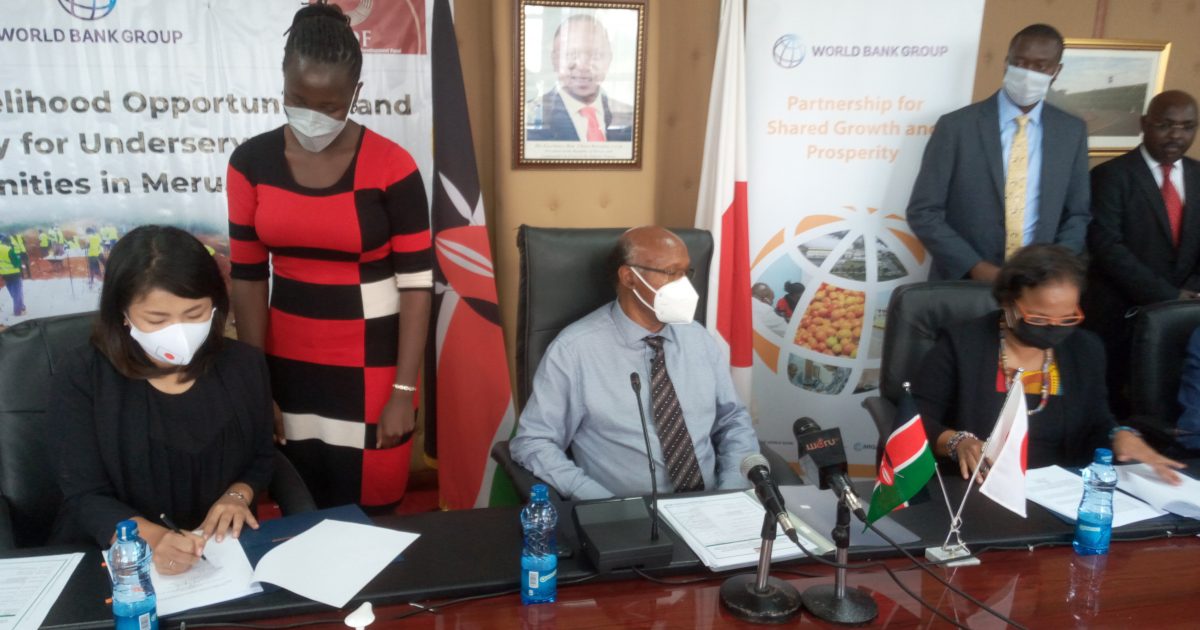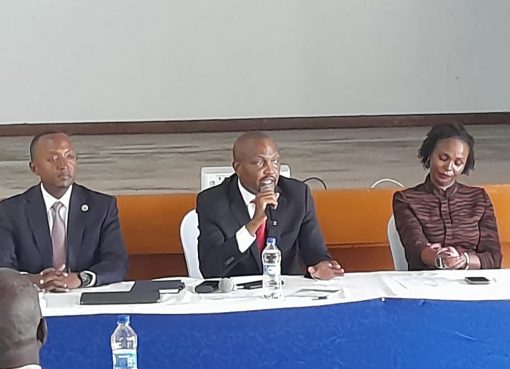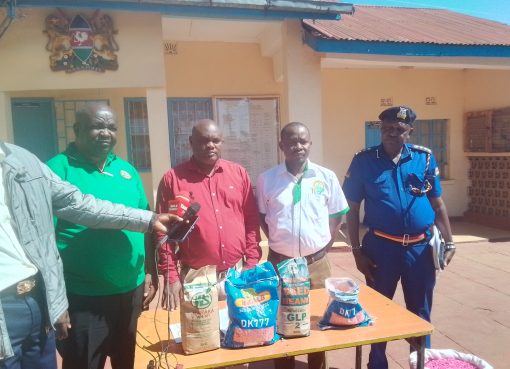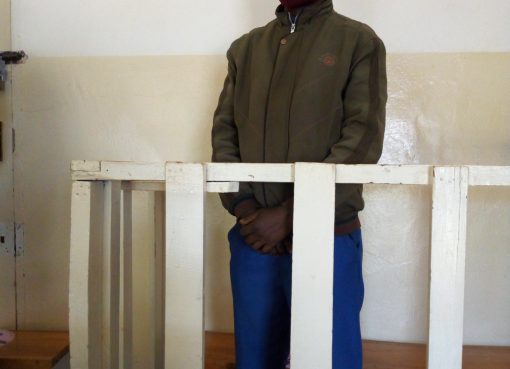The Kenyan Government in partnership with the government of Japan and World Bank will improve the livelihoods of Meru County underserved urban communities by providing opportunities and accessibility through road construction.
The grant Aid Facility of US$2.75 million from the Japan Social Development Fund was the product of a successful grant application by the Ministry of Transport, Infrastructure, Housing, Urban Development and Public Works in partnership with the World Bank back in 2017.
Infrastructure Principal Secretary (PS), Prof. Paul Maringa, said that the project will support community-driven development and poverty reduction initiatives and increase access to social and community services as well as improving the living conditions of vulnerable groups in Meru County.
He thanked the government of Japan and World Bank for extending the grant to Kenya, specifically Meru County adding that the project will be implemented by the recipient of the Grant Aid Facility, the Community Road Empowerment (CORE), a Japanese Non-Governmental Organisation registered in Kenya, while the National and County Governments will participate in providing oversight as well as technical and advisory support during the implementation process.
Other participating agencies will include the Kenya Urban Roads Authority (KURA) and the Kenya Roads Board (KRB) for which the implementing entity will enter into memoranda of understanding with all the agencies to define the roles of each institution in the project.
Prof. Maringa noted that at the time of government’s application for the Grant Aid Facility in 2017, the Ministry was then implementing a World Bank financed project – the National Urban Transport Improvement Project (NUTRIP) under which 23km of bypass roads were being constructed in Meru town.
“The Grant Aid Facility, therefore, aims at complementing the benefits of this World Bank financed project through improvement of about 20km of access roads leading to the bypasses and providing accessibility to basic services such as markets, schools, and hospitals,” he reiterated, adding that the improvement will be done using Japan’s labour-based ‘Do-nou’ technology which means wrapping soil in a gunny bag.
The PS pointed out that the underserved low income urban communities are based in Majengo, Mjini, and Gitimbine areas in Meru Town which are adjacent to the existing bypass roads.
Apart from the assurance of the Meru County Government’s support to the World Bank team and the Ministry during the entire project preparation period, Prof. Maringa emphasized on the intense stakeholder and community consultations that were held during preparations for the project where the beneficiary acceptability was obtained.
“Therefore, the project activities will prioritize youth, women, and other vulnerable groups by creating employment opportunities in labour-based road maintenance,” he maintained.
He added that the Project envisages to train at least 1,200 beneficiaries in Do-nou technology used in road maintenance in addition to providing training in the formation and running of small and medium enterprises (SMEs).
The target communities, according to the PS, will be given technical and financial support to open SMEs as part of their participation in the project.
Prof. Maringa said that the project aligns with other programmes in the transport sector including the ROADS 2000 programme as well as other ongoing projects financed by the World Bank including the Horn of Africa Gateway Development Project (HoAGDP) and the Kenya Urban Support Project (KUSP).
“The project will promote use of local resources and labour-based road construction methods as part of the sector’s poverty reduction strategy,” he stated.
Further, he revealed that the project will be implemented off budget, and the National Treasury has given clearance for this arrangement.
The PS stated that the project implementation duration will be four years, with the actual implementation taking 36 months and monitoring and evaluation as well as knowledge dissemination taking 12 months.
He maintained that during the fourth year, the project will aim at enhancing the adaptation of the Do-nou technology within the county’s road maintenance mechanism to ensure their sustainability, assessing the project’s impact and identification of lessons learned, and disseminating knowledge obtained through this pilot project to enhance its replication in other counties.
“The project components will involve capacity building and sustainability of labour-based road maintenance technology in the targeted communities at a cost of US$ 2 million, where the Kisii Training Centre will be involved in the training to be held in Meru to keep costs low and attract more participants. Further, the enhancement of livelihood opportunities and also the project management, monitoring and evaluation, and knowledge dissemination will cost US$ 0.21 million and US$ 0.54 million respectively,” he explained.
In a quick rejoinder, the World Bank represented by the Operations Manager Camille Nuamah said that the institution is currently investing in the transport sector to the tune of US$ 1.3 billion with two ongoing transport projects in the north west and north east of Kenya that are historically marginalized and fostering the sector reform to advance an integrated intermodal transport development.
“The World Bank continues to boost the Kenyan government’s endeavour to implement the Integrated National Transport Policy and reduce persistent inequality of access to services and opportunities, such as schools, health facilities, and markets with an improved and resilient transport infrastructure,” she said
At the same time, the Embassy of Japan represented by the Second Secretary Naomitsu Katsumi said it was a great pleasure to be involved in the signing agreement between World Bank and CORE to kick-start a project aimed at creating employment opportunities and skills in labour based road maintenance and improve basic access to the target population of the underserved communities in Meru County.
“In addition to providing employment opportunities, I believe this project will reduce poverty and improve the quality of life to the people of Meru, whereby CORE will transfer their experience and improve conditions and access to Meru County by the outside world thereby providing opportunities for new investments,” he said.
He encouraged adherence to safety measures during civil engineering works with support from the national government insisting that safety should be the number one priority in construction sites that he believes has led to Japan’s high quality in infrastructure.
Katsumi maintained that the Government of Japan has supported economic and social development in Kenya at both the community and national level through CORE which has employed Japan technology to improve agriculture production and conserve the environment for poverty and hunger reduction.
By Michael Omondi





